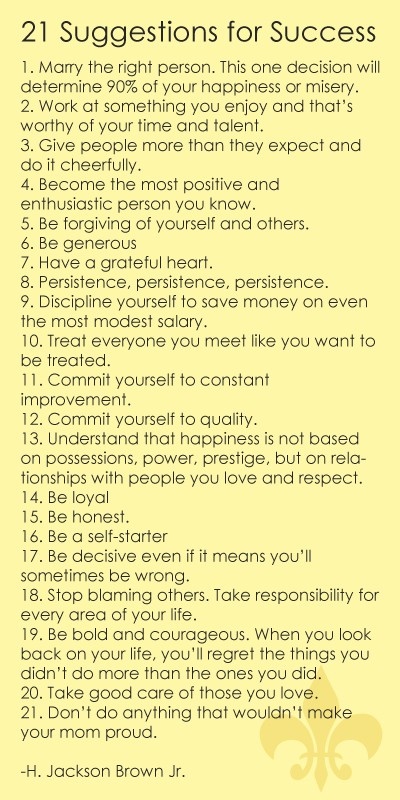
I have moved cities many times now. Sometimes for work or university; sometimes for hubby’s work. I can tell you as you get older it gets harder to find your new groove. I look around at the people who have lived here all their lives, and their large circle of friends, and I know that while I gained many things with my moves, I lost dearly on the friendship front. In University it used to be easy as saying hello. Now, it requires real effort.
Here’s a nice synopsis of what you have to do to make friends in a new city, by Jeremy Anderberg.
The Three Keys to Fostering Friendship
Beginning in the 1950s, sociologists began to delve into friendship theory. They came to the idea that true friendship relies heavily on three main conditions. Some people nowadays are beginning to refute this theory as our world grows evermore digital, but I don’t buy that necessarily. Having plenty of friends on Facebook is not the same as having friends.
Proximity: Being physically close to people for extended periods of time naturally lends itself to friendship. Again, some people try to refute this as not as necessary in today’s world. However, think about your high school or college friends once you moved away. It got much harder to truly stay in touch, and you likely drifted from most of them. Yes, you can see what they’re up to on Facebook, but if you don’t correspond regularly are you really friends?
Repeated & Unplanned Interactions: This means bumping into Jake at the local coffee shop in the morning, or catching up with Will and his wife at church on a Sunday morning. These aren’t planned get-togethers; these are times when your paths cross randomly throughout town. Obviously, this is much trickier post-college. You can help this, though, by choosing to do your shopping, dining, exercise, etc. within your neighborhood. This increases the chances of running into people over and over again, and perhaps making new friends.
A Setting That Encourages Vulnerability: Vulnerability here means people being able to let their guard down and truly be who they are. When you first meet people, no matter the environment, they tend to be cautious. They won’t let their sense of humor show, they won’t talk too much about their personal lives, etc. People are more likely to open up when you have a small backyard BBQ versus just meeting up at your local trivia night every week. It’s in smaller and more personal settings that friendship grows.
Why Making Friends After College Is Harder
We don’t know how to do it. In school, no matter the level, the three keys listed above come naturally to the environment. You’re around roughly the same people, nearly 24/7, for 4+ years. Once we’re out and we’ve moved away, we realize we don’t really know how to be intentional about creating those environments that lend themselves to friendship. We have to learn that it takes action to get out of the house and meet people. We also have to learn how to make plans and follow through, as those unplanned interactions from college will occur less and less. Those are things that won’t necessarily come naturally, because they haven’t had to.
Priorities change. Humans use friendship to fill certain emotional needs. A great New York Times article puts it like this:
“People have an internal alarm clock that goes off at big life events, like turning 30. It reminds them that time horizons are shrinking, so it is a point to pull back on exploration and concentrate on the here and now. ‘You tend to focus on what is most emotionally important to you,’ she [Laura Carstensen, Stanford Center on Longevity] said, ‘so you’re not interested in going to that cocktail party, you’re interested in spending time with your kids.’”
If you can get emotional fulfillment from your family, you won’t look for it as much elsewhere. So there comes a point where we stop even trying to make friends and end up thinking we can be content interacting only with the people in our household. There comes a time when you’ll crave some sort of social interaction beyond your spouse and kids.
Being a couple makes it more complex. As people “couple up,” the challenge of making real friends increases. Not only do you have to like someone, but, ideally, so does your spouse. If you’re making friends with another couple, the difficulty is magnified even more. Does each person like each member of the other couple? At times, you’ll likely have to compromise a little bit.
Having children makes it more complex. Children not only take away some of that previous social time you once had, it can create uncomfortable and forced friendships. If the kids get along, the parents can feel like they have to get along too. As comedian Louis C.K. riffed: “I spend whole days with people, I’m like, I never would have hung out with you, I didn’t choose you. Our children chose each other. Based on no criteria, by the way. They’re the same size.”
We become pickier. With less time and emotional need for friends, we may start to set the bar incredibly high as to whether someone is worth trying to get to know better or not. We expect to share a whole lot in common with them, and want the kind of deep connection we had with friends in our younger years. But what’s interesting is that if you look back on many of the buddies you had in high school and college, what you realize is that if you hadn’t met during that time, and had that much automatic proximity contact, you probably wouldn’t have become friends otherwise; they weren’t the kind of person you would have picked out in a different situation to befriend. Because you got thrown together, you became pals. So even if you don’t feel like someone has the potential to be your bosom buddy right off the bat, give them a chance.
We simply give up. Maybe you’ve gone above and beyond and really put yourself out there and had no return whatsoever on your friend-investment. Just as with dating, not every relationship is going to take off. You can expect some friendships to just sort of wither away over time, or even in some cases be outright “dumped.” It doesn’t mean you have to give up, though, and accept, as the NYT put it, that “the period for making B.F.F.’s, the way you did in your teens or early 20s, is pretty much over. It’s time to resign yourself to situational friends: K.O.F.’s (kind of friends) — for now.” Friendships are too important an ingredient in our well-being; you just have to keep trying.
Steps You Can Take to Make Friends in Your New City
With the above in mind, here are some ideas to get you started making new friends in your new city. These ideas are a combination of a case study of our own experience here in Denver as well as plenty of research from books and articles on the subject.
Introduce yourself to your neighbors. We can have hundreds of Facebook friends and yet not know the names of the people who physically live right next to us. That has to change. Your first foray into making friends should be introducing yourself to your neighbors. Bring over a cake, a six-pack, anything to literally get your foot in the door. You’ll want to meet them anyway, as you’ll likely need to borrow something or get some basic information about the neighborhood. If you don’t hit it off and become great friends, that’s fine, but at least you made the effort and now have someone you know next door.
Stick to your neighborhood as best as you can. It all lends itself to friendship, especially over the long haul, much more than spreading out all your activities. You’ll have to adjust based on your own surroundings. It’s something to consider, however, when you do move to a new place.
Re-connect with old friends and acquaintances. This is a good one. Whether high school or college, connect with your alumni network and you’re bound to find someone in your new town that went to the same school as you, and if you’re lucky, even at the same time as you. Even if you weren’t really friends in school, you never know what can happen a few years down the road.
Make detailed plans. 84-year-old entrepreneur and producer Roger Horchow says, “You can’t just say, ‘Let’s get together sometime.’ You could be dead by then.” This is all too true.
Have a hobby and be open to meeting people while doing it. You’ll see this tip everywhere. “Join a club or a hobby group and you’ll make friends instantly!” That’s only partially true. In my case, I practice my hobbies alone, but I’m open to meeting people along the way.
Take advantage of the internet. Sites like meetup.com make it very easy to find groups around you that have similar interests. It’s also no pressure. You can scan events happening in your area, and decide whether or not to go – no one is keeping an attendance sheet. If you’re on LinkedIn, you can find all kinds of networking events in your new city, and even connect one-on-one with folks by saying something like, “Hi, I’m new to the city. Would you mind sitting down with me over a cup of coffee and talking about networking and business opportunities?” In my experience, people are incredibly friendly to these types of invitations.
Connect with your coworkers. This one can be tricky. Coworker relationships are often complex – you never really know where work/career aspirations end and true friendship begins. You have to test the waters and perhaps attend a few networking events together or a happy hour after work. Be open to this, but also don’t feel bad about maintaining barriers between work and play if you have to.
Open your house for meals and get-togethers. This is admittedly difficult. It’s is one of those things that can really only happen as you start to make some acquaintances. Invite coworkers, friends from a small group, the guys on your YMCA basketball team…even just one or two contacts with someone is enough to invite them over if you’re brave.
This is a great way to foster the type of environment that gets people to open up more. Plan a holiday meal for folks that don’t have other plans (we did that for Easter, and it was great). Offer to host a make-your-own pizza night or a college football afternoon. It doesn’t have to be anything special, it just shows that you’re willing to put yourself out there and get to know some new people. It also tends to happen that if you offer to host, it will be reciprocated in the near future.
In general, the biggest things that will help you in a new city are being open to friendships and opportunities wherever you go, and then following up and making concrete plans. I’m an introvert by nature, so when I’m invited to events or get-togethers, my gut instinct is usually to say no. I’ve had to pull myself out of that shell and change my default answer to yes. I very rarely regret it. Put yourself out there by getting out and about around town on a regular basis, be patient, say yes, and over time, you’ll have a great new group of friends.
-shamelessly adapted from http://www.artofmanliness.com/2013/04/17/how-to-make-friends-in-a-new-city/. Check this blog out. It’s about reviving the lost art of manliness.


















